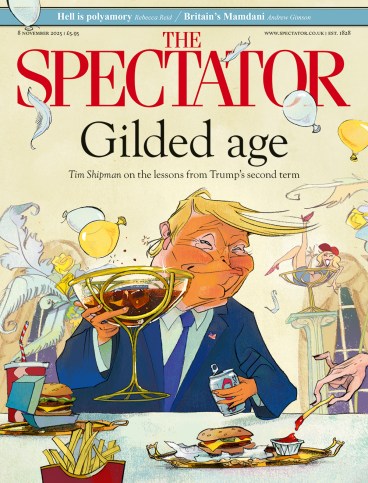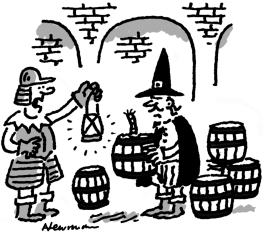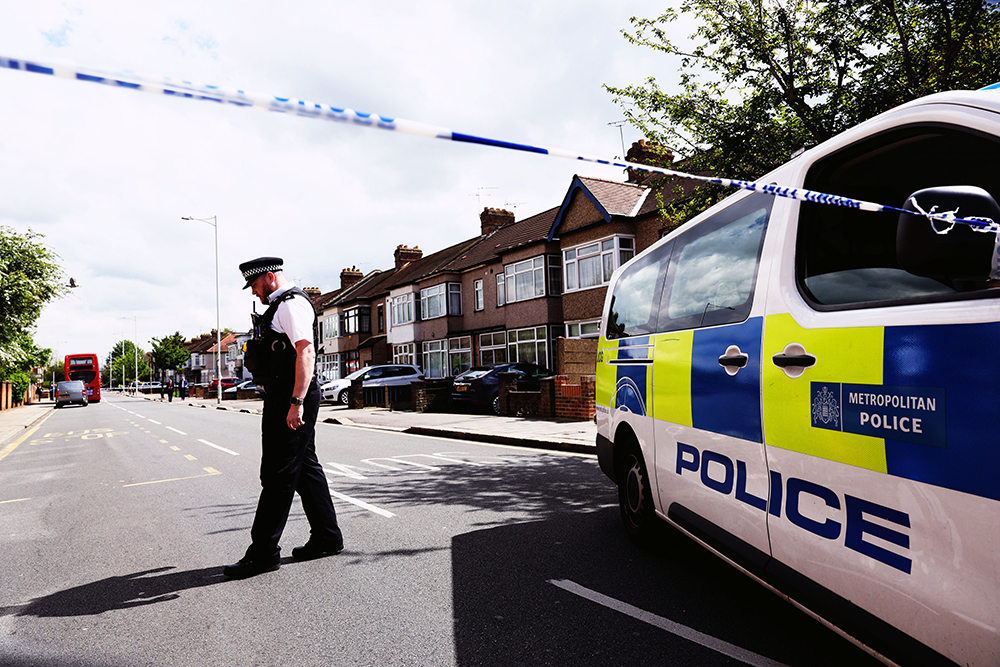
I learnt not to intervene on a late summer’s afternoon nine years ago. My son was still a baby and I was pushing him in his pram across a busy road in a responsible way, only after the green ‘walk’ man had lit up. I was about halfway over when a boy of about 14 on a moped scorched through the lights and past us, nearly hitting the pram. I yelled at him, and as I yelled felt the spirit of civic duty rise within me. If we middle-aged mothers don’t set the kids straight, who will?
The boy skidded to a stop and turned to face me. I can’t now remember what he said, but the gist of it was that I’d radically misjudged the situation and that if I didn’t show him some respect, he’d have to hurt me. Then he revved his engine and drove straight at me, stopping just short of the pram, to make his point.
After that, I suppressed the spirit of civic duty and learnt instead the art of unseeing, which has served me well for a decade. Unseeing is an invention of the author China Miéville, used as a device in his novel The City and the City, in which different inhabitants of the same physical space learn to entirely ignore one another. The way the London version of it works is that the moment you notice any threat or act of public vandalism, you simply unfocus your eyes and look off to one side with a thoughtful expression, as if just remembering a vital item left off a shopping list.
It’s amazing what we middle-classes can unsee with a bit of practice: kids with foot-long zombie knives, whey-faced addicts filling their rucksacks in Sainsbury’s; men carrying knives in public, as has been suggested of Anthony Williams, the alleged train stabber, in the days leading up to the Huntingdon attack.
For the past few years, I’ve been teaching my son how to unsee too. Like most children he’s naturally fair-minded and keen to right injustice, so it takes some doing to squash his inner decency. Cross the road quietly when you see a giant pitbull, I tell him, and no, the owner doesn’t need reminding that it’s against the law not to use a muzzle. I’ve taught him to listen for the clicking sound of a stolen Lime bike, and to beware the kids who ride them. Respect them. Don’t look at them. Never tell them to get off the pavement. In the opticians recently, as my son and I waited for his glasses, a man rushed in, smashed the glass case surrounding the designer frames, scooped the lot and ran out. The in-store security guard explained to us, as he swept up the glass, that he’d been told not ever to intervene. The police never come, he said, and the shop has insurance so why risk your life? Why bother? We nodded. Why bother?
I practised the usual unseeing with my son. Don’t look at the flashing lights. What blood on the pavement?
A few weeks ago, I wrote about the Turkish gangs vying with each other to control north London, and the shootings. In the wake of the horror on the Huntingdon train, I think it only right to mention stabbings too. Violent crime is falling in London, we’re told repeatedly. Perhaps in some narrow sense this is true. But it’s astonishing to me then how much of this falling crime there seems to be.
I’m writing this in Islington, London on the evening of Tuesday 4 November. In this borough last night, on Monday evening, a young woman in her twenties was stabbed as she walked through Elthorne park, between the Philip Noel-Baker memorial peace garden and the children’s playground. Nine days before that, just 500 metres away, another Islington twentysomething was stabbed and left with what the papers call ‘life-changing injuries’. And just a few hours ago, as my son and I drove home down the Essex Road, we noticed a police cordon around our local post office, several panda cars and an ambulance. It was another stabbing, according to X, only a few hundred metres from the double stabbing two weeks ago outside the kebab shop up the road.
I practised the usual unseeing with my son. Don’t look at the flashing lights. What blood on the pavement? Look over there, on the other side of the road. Isn’t it interesting they’ve already got Christmas decorations up? But after the train stabbings, suddenly it felt somehow wrong.

It was ordinary citizens, in the end, who did stand up to the stabber, believed to be Williams: Samir Zitouni, a 48-year-old rail worker who’s in a critical condition in hospital, who stepped forwards, into the swing of the knife, to prevent it from slashing a young female passenger; Stephen Crean, 61, who turned to face the attacker after he found there was nowhere to hide, thinking he could at least buy some time for those who’d managed to make it to the buffet car. Crean said: ‘It did not dawn on me not to.’
This middle-class unseeing is no good. I’m not suggesting we send nine-year-olds in to do battle with violence, but if we teach our sons to glaze over – if they learn from watching us not to bother with even petty crime – who will be the next generation of Creans and Zitounis? And what will society become?
All we know for a fact, before Williams appears again at Cambridge Crown Court on 1 December, is that we can’t necessarily rely on the police to protect us. The police have said that Anthony Williams is linked to various other knife incidents in the days before the train attack. It’s possible he stabbed a 14-year-old in Peterborough city centre, and perhaps another person on a train at Pontoon Dock on the DLR in London. He has also been linked to a knife incident in a barber shop in the Fletton area of Peterborough. We don’t any more have the luxury of looking away.








Comments